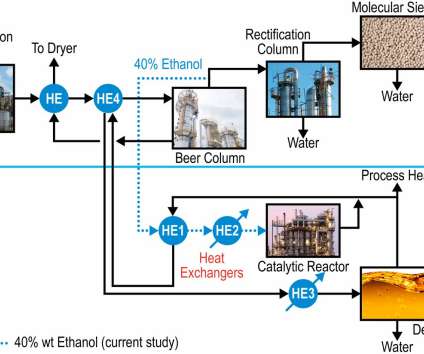Study suggests that decarbonizing US transport sector by converting waste CO2 to fuels would require economical air-capture of CO2
Green Car Congress
NOVEMBER 7, 2010
When that carbon is converted into a fuel, burned, and exhausted to the atmosphere, the overall cycle is roughly neutral. This raises the unusual possibility of the transportation sector becoming decarbonized before. CCTF will only employ direct CO 2 capture from air when the CO 2 emission price exceeds the cost of air capture.


















Let's personalize your content